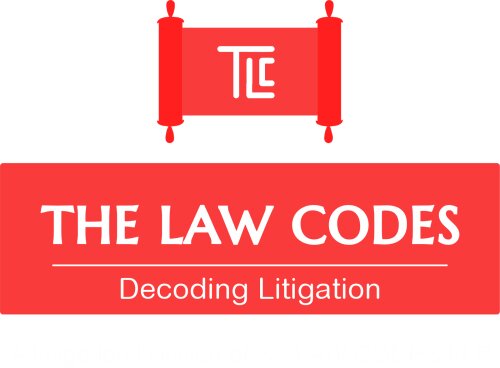Best Constitutional Law Lawyers in India
Share your needs with us, get contacted by law firms.
Free. Takes 2 min.
Or refine your search by selecting a city:
List of the best lawyers in India
About Constitutional Law in India
Constitutional Law in India is the supreme law of the land, governing the legal framework within which the Indian government functions. It is based on the Constitution of India, which came into effect on January 26, 1950. The Constitution establishes the principal political institutions, outlines fundamental rights and duties of citizens, and prescribes the directive principles of state policy. Indian Constitutional Law is dynamic, having undergone numerous amendments to reflect changing social and political realities. It ensures the rule of law, separation of powers, and the protection of individual liberties.
Why You May Need a Lawyer
Legal expertise in Constitutional Law may be necessary in several situations, including:
- Challenging laws or executive actions that violate fundamental rights.
- Cases involving discrimination based on race, religion, gender, caste, or creed.
- Addressing grievances related to electoral practices.
- Filing Public Interest Litigations (PIL) concerning broad public concerns.
- Litigation concerning misuse of power by a public authority.
- Resolving conflicts arising from the interpretation of constitutional provisions.
- Handling cases involving national security and emergency powers.
Local Laws Overview
India's Constitutional Law is comprehensive, encompassing various provisions applicable at the national and state levels. Key aspects include:
- Fundamental Rights: Articles 12-35 describe rights such as the right to equality, freedom, protection against discrimination, and more.
- Directive Principles of State Policy: Aimed at guiding state policies towards promoting social and economic justice (Articles 36-51).
- Federal Structure: Distribution of powers between the central and state governments, outlined in the Seventh Schedule.
- Emergency Provisions: Articles 352-360 contain provisions for national, state, and financial emergencies.
- Judicial Review: The Supreme Court of India has the power to interpret the Constitution and invalidate legislation conflicting with constitutional provisions.
Frequently Asked Questions
What is the significance of the preamble of the Indian Constitution?
The preamble serves as an introduction and embodies the philosophy and aspirations of the Constitution. It indicates the source of authority and envisions India as a Sovereign, Socialist, Secular, Democratic Republic.
What are Fundamental Rights?
Fundamental Rights are basic human rights guaranteed to all citizens, safeguarding individual liberty and establishing equality and justice in society, outlined in Part III of the Constitution.
Can Fundamental Rights be amended?
While Fundamental Rights can be amended, such amendments are subject to judicial review to ensure they do not alter the 'basic structure' of the Constitution.
What is meant by the 'basic structure' of the Constitution?
The 'basic structure' doctrine maintains that certain fundamental features of the Constitution cannot be altered or destroyed through amendments by the Parliament.
How does the judiciary ensure the protection of Constitutional Law?
The judiciary, particularly the Supreme Court and High Courts, have the power of judicial review, allowing them to nullify laws and executive actions contravening constitutional mandates.
What is a Public Interest Litigation (PIL)?
A PIL allows individuals or groups to file lawsuits in court representing collective societal interests, enabling social justice initiatives through legal mechanisms.
How does the Indian Constitution address diversity?
The Constitution recognizes and respects India's diverse culture, languages, and religions by providing rights and protections to ensure non-discrimination and equality.
What role does the President of India play in Constitutional Law?
The President serves as the constitutional head of state, performing ceremonial and legislative tasks, including assent to bills and exercising emergency powers when needed.
What are Directive Principles, and are they enforceable?
Directive Principles are guidelines for the state to frame policies aimed at social and economic welfare. They are non-justiciable, meaning they cannot be enforced in a court of law.
How are disputes between the central and state governments resolved?
Disputes are resolved through the judiciary, primarily the Supreme Court, which interprets constitutional provisions to mediate and settle conflicts between different levels of government.
Additional Resources
For further information and guidance on Constitutional Law in India, consider exploring the following resources:
- The Constitution of India (legal text)
- The Supreme Court of India: Judgements and case statuses
- The Ministry of Law and Justice: Offers legal documentation and government initiatives
- The National Human Rights Commission: Advocacy and assistance with rights violations
- Legal websites and journals providing analysis and commentary on constitutional matters
- Organizations like the Bar Council of India for professional legal assistance
Next Steps
If you require legal assistance in the field of Constitutional Law in India, consider taking the following steps:
- Identify the specific nature of your legal concern related to Constitutional Law.
- Gather relevant documentation and details pertaining to your case or issue.
- Search for a qualified constitutional lawyer or law firm with expertise in the area of your concern.
- Consult with legal professionals for advice on potential legal actions or remedies available.
- Consider reaching out to legal aid services if you require financial assistance for legal representation.
- Stay informed about your rights and the legal procedures involved in your case.
Lawzana helps you find the best lawyers and law firms in India through a curated and pre-screened list of qualified legal professionals. Our platform offers rankings and detailed profiles of attorneys and law firms, allowing you to compare based on practice areas, including Constitutional Law, experience, and client feedback.
Each profile includes a description of the firm's areas of practice, client reviews, team members and partners, year of establishment, spoken languages, office locations, contact information, social media presence, and any published articles or resources. Most firms on our platform speak English and are experienced in both local and international legal matters.
Get a quote from top-rated law firms in India — quickly, securely, and without unnecessary hassle.
Disclaimer:
The information provided on this page is for general informational purposes only and does not constitute legal advice. While we strive to ensure the accuracy and relevance of the content, legal information may change over time, and interpretations of the law can vary. You should always consult with a qualified legal professional for advice specific to your situation.
We disclaim all liability for actions taken or not taken based on the content of this page. If you believe any information is incorrect or outdated, please contact us, and we will review and update it where appropriate.
Browse constitutional law law firms by city in India
Refine your search by selecting a city.
















